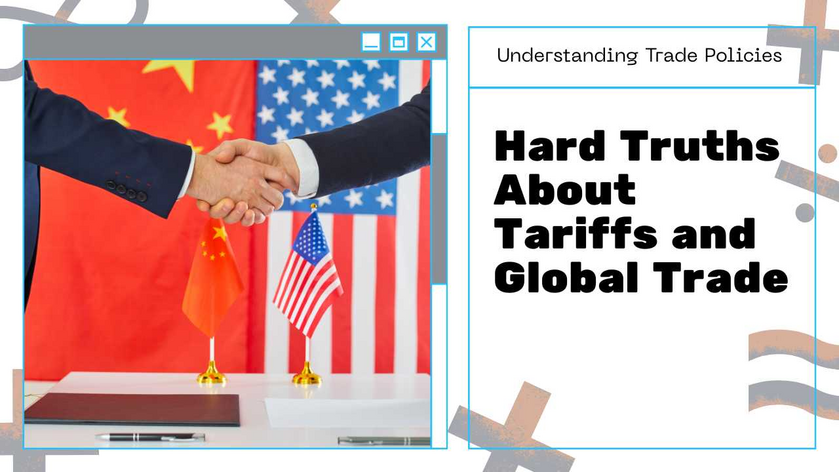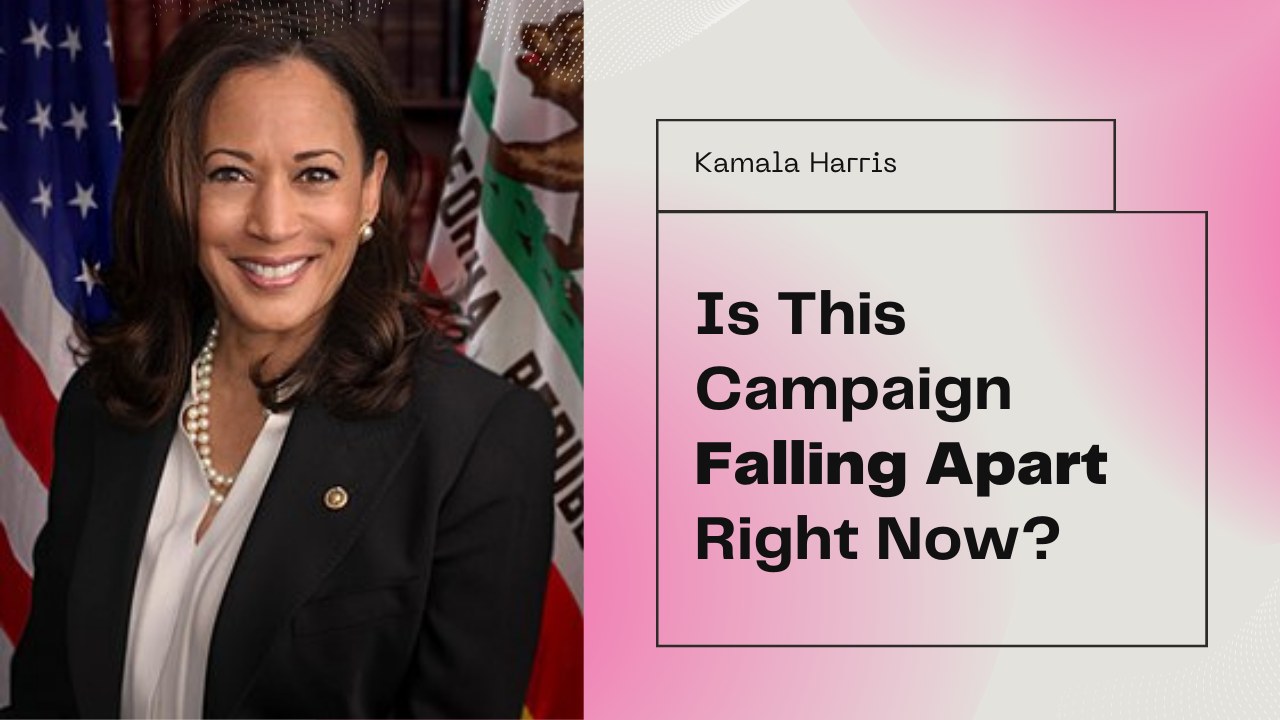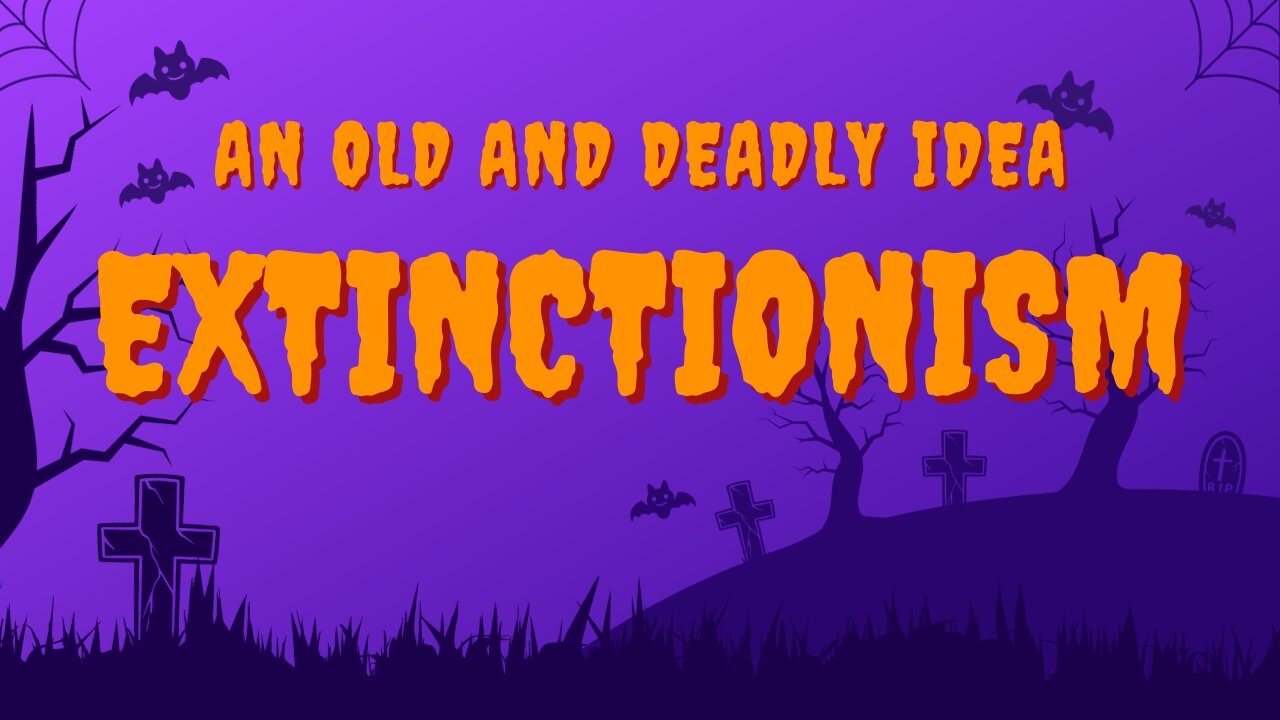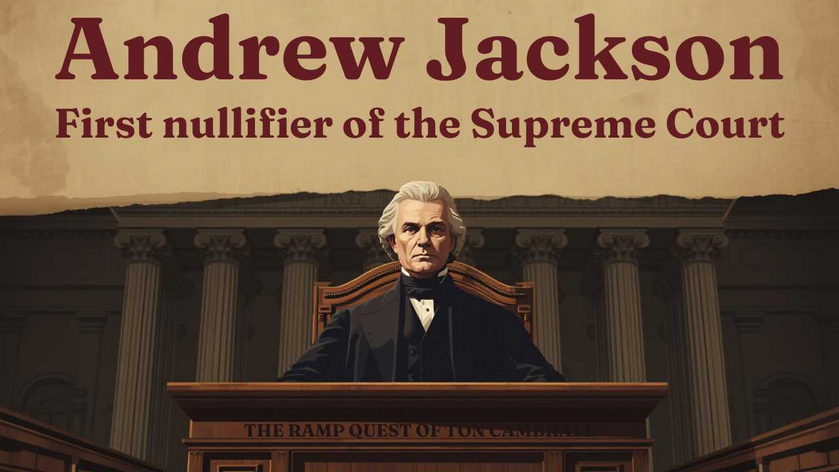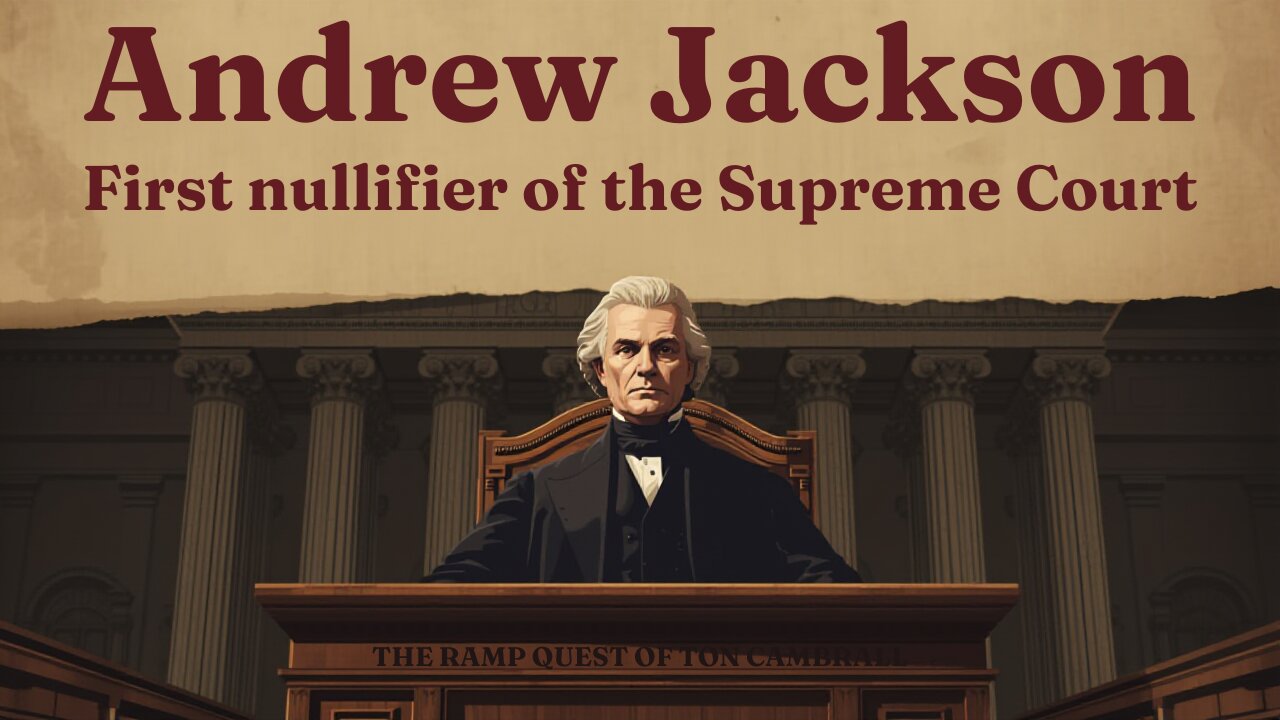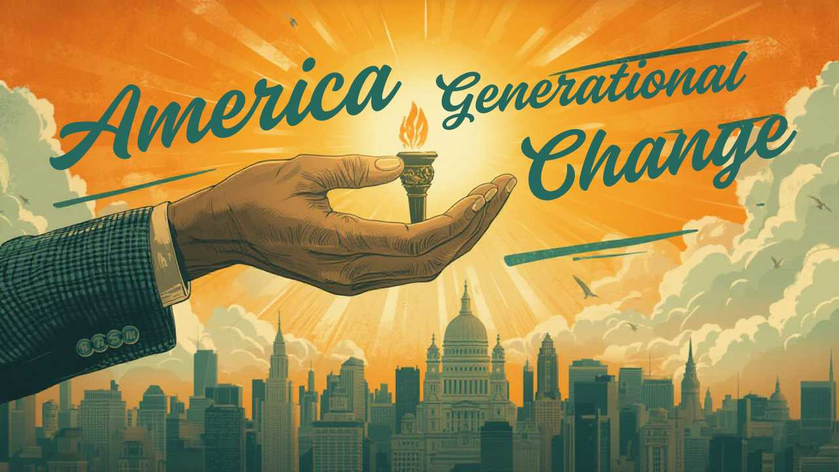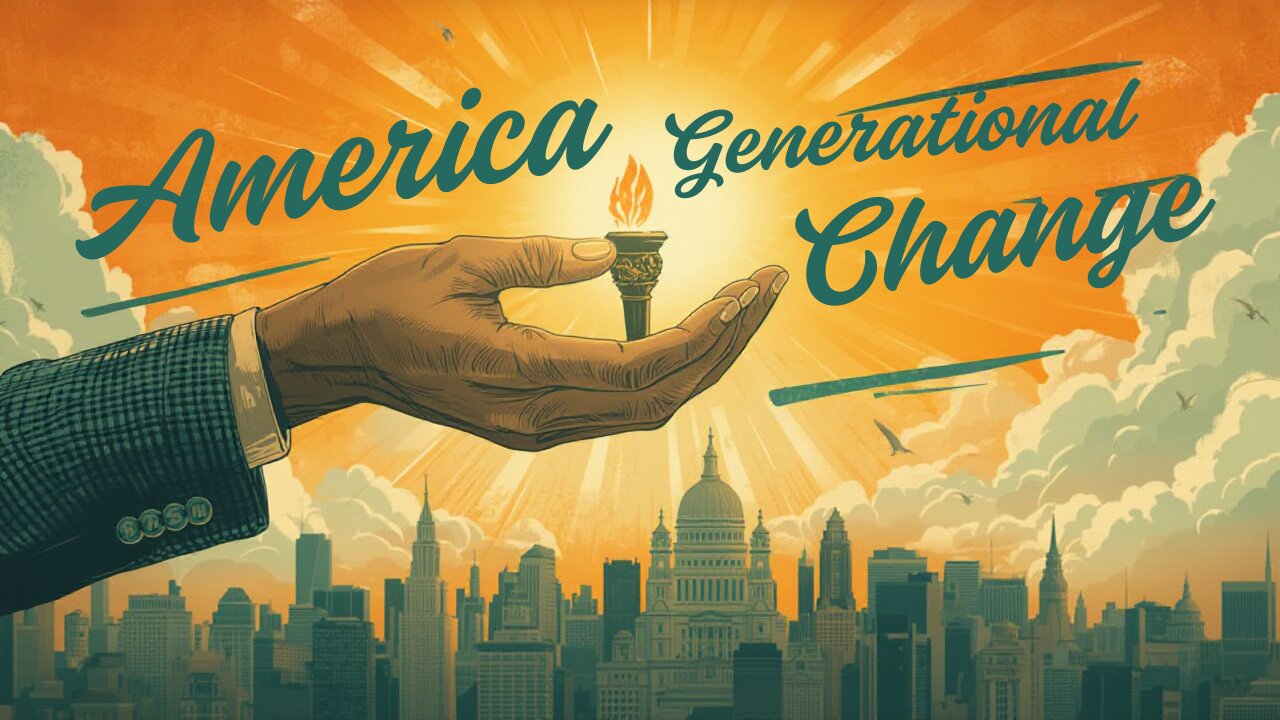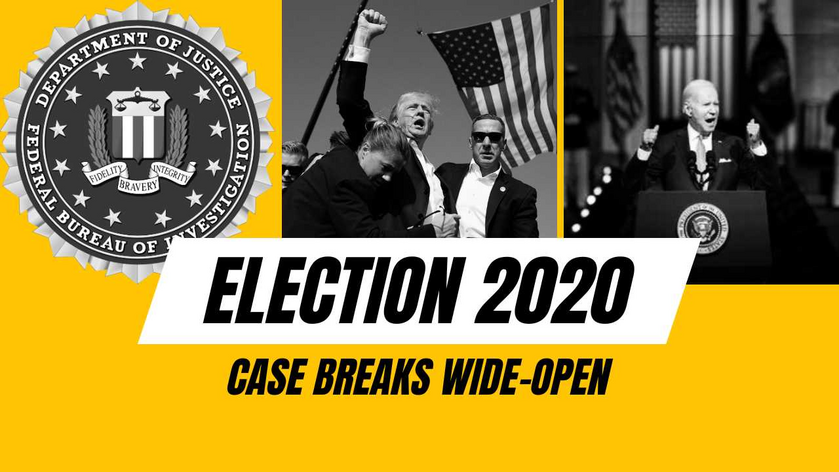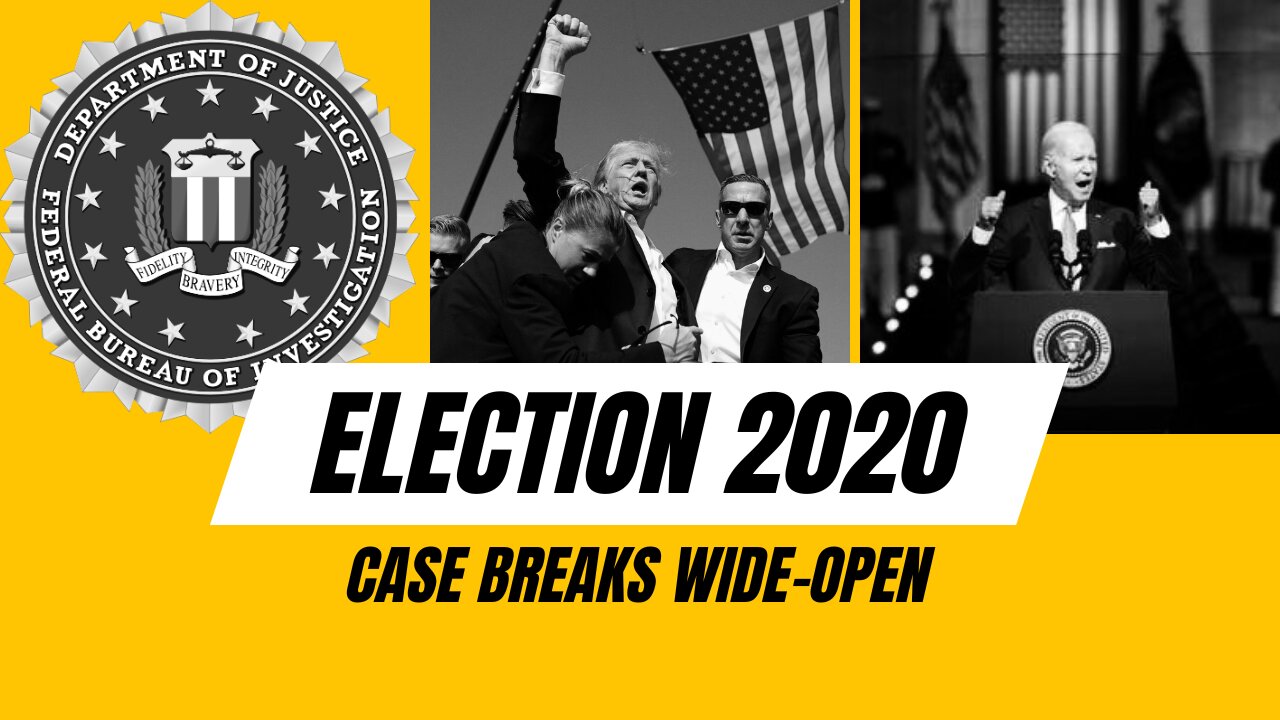Last week, a libertarian, constitutionalist, and apparent Christian preterist submitted to CNAV one of the more thoughtful objections to President Donald Trump’s policies on tariffs and trade. Objections from Democrats and their allies don’t count. After all, Democrats favored tariffs back when the Bush Dynasty controlled the Republican Party. That in itself is ironic, because Woodrow Wilson, who began decades of Democratic rule over America, eliminated all tariffs. (His replacement: the graduated income tax.) So anything Democrats have to say on trade policy is self-serving and hypocritical. But libertarians offer consistent and sincere arguments – which does not make them correct. Herewith the rebuttal to that submitted argument, which CNAV promised.
Who is Robert W. Peck?
Robert W. Peck is the chairman of the Constitution Party of Washington State and a member of the Constitution Party National Committee. He also keeps his own web site, Perspectives, and occasionally submits articles to CNAV.
He professes to be a Christian, and in his writings has left no doubt on that score. But the only thing Christians reliably agree upon is the need for, and assurance of, spiritual salvation. On how to interpret the Revelation to St. John of Jerusalem, Christians of good heart have their sharpest divide. Mr. Peck believes that John of Jerusalem was foretelling the Sack of Jerusalem and Destruction of Herod’s Temple in 70 A.D. by Titus, son of, and successor to, Emperor Vespasian. Never mind that John wrote his Revelation on the Island of Patmos in 96 A.D., twenty-six years after the Second Roman-Jerusalem War started. (Pompey the Great fought the First one as part of his campaign against Mithridates of Pontus and Tigranes of Armenia.)
Or perhaps John was prophesying the Third Roman-Jerusalem War of 135 A.D., by order of Emperor Hadrian. That War resulted in the Great Scattering (Diaspora) of the Jews.
All of which to say that Peck is a preterist, who does not accept a time of worsening moral decay. John of Jerusalem predicted this, as did Paul of Tarsus. Peck denies this, and this explains his adherence to the central flawed tenet of libertarianism: universal goodwill.
What is universal goodwill?
Universal goodwill tells us that human beings have no good reason to fight. An individual especially has no enemies but what he makes. People make enemies, says Peck, because they engage (he would say indulge) in zero-sum thinking. A zero-sum game has a winner and a loser. Or in a multi-player game, net victories exactly balance net defeats.
To which he raises two objections. First, men of goodwill should be able to arrive at an equitable distribution of scarce resources between them. Second, no such things as limited or scarce resources need exist. His idealized story of economics (literally, Laws of the Household) features infinite increase. Are we running out of land? Venture off-world and find or create more! Columbus did it, and John Cabot; why can’t we? Is someone foolish (by his lights) to reach out for land to conquer, plunder and pillage? Pull up stakes and get out of his reach! (And never, never, never lend credence to the notion of literal, geographical Promised Land! That explains why he and his friend Darrell L. Castle consistently discount the Biblical territorial claims of something called Israel.)
Libertarian foreign and trade policy assumes universal goodwill, and either infinite resources or ever more dense resource utilization. Sadly, the real world does not conform to these comfortable nostrums. That is why his recommendations on tariffs and trade must necessarily fail.
Primer on tariffs
Peck begins with some definitions, and shows a competent – but incomplete – understanding of the issues behind them. Tariffs, he says, are taxes on imports. Specifically, governments lay and collect tariffs from the importer, who must recoup them, and the costs of goods he imports. But Peck understands only one purpose of tariffs:
The idea is to tax imported goods at a rate calculated to make them as expensive to consumers, or more so, than their domestically produced counterparts. When that happens, American-made products can “compete” with imports. Consumers will then purchase U.S. products, creating a demand for production and thus preserving, or even creating, jobs.
True, but incomplete. Tariffs also are a source of revenue. Before Wilson, tariffs were the source of revenue for the federal government. Every country imposed them; that is how their governments ran. But tariffs never amounted to more than perhaps ten percent of the importer’s purchase prices. The U.S. government understood the Laffer Rule long before Arthur Laffer was born. When tariffs are too high, imports, and the revenue from tariffs, will cease.
Woodrow Wilson destroyed that understanding completely. Ostensibly he said he would build upon universal goodwill of all nations. In fact he laid the trap for the graduated income tax, and gained the confidence of two-thirds of both houses of Congress and three-fourths of the State legislaturres to amend the Constitution to permit this kind of tax. (The confidence trick might have been more profound if someone can invalidate Ohio’s ratification of Amendment XVI.) By no accident, President Trump has proposed to replace income-tax revenues by tariff revenues. Let no one imagine that this would be unprecedented. It has more than a century of precedent behind it, that century being the pre-Wilson century.
Trade barriers other than tariffs
Peck goes on to detail other barriers to international market entry. Subsidies are direct cash payments to domestic manufacturers, or guaranteed purchase agreements. Farm Bills always feature subsidies: the government buys food in quantity, and ostensibly hands this out to needy citizens. These are the food stamps of popular political lore.
Regulation works the opposite way. Peck regards most regulations as facilitating entry of foreign goods into the U.S. market. Farmers or manufacturers in other countries don’t need to comply with American environmental, labor, or other regulations. Their goods, therefore, cost less. Correct as far as it goes – but surprisingly, Peck doesn’t carry his research any further. Robert C. O’Brien of American Global Strategies recommends the obvious adjustment: a specific tariff to recoup the costs of pollution. Or, call it a compensation for the regulations with which Americans must comply. CNAV would carry O’Brien’s idea further. Why not a tariff to cover compliance costs for all other forms of regulation?
When Peck discusses trade deficits, he blames them entirely on the removal of the gold standard. But he ignores what prompted President Richard M. Nixon to move off that standard. This is not to excuse Nixon; he should have re-instituted the pre-Wilson tariff regime. It is to remind people that trade deficits remain, even with a gold standard.
The sum of the game
Peck’s worst failing is his assumption that the sum of the Game of Life is not zero – and is never zero. For some games, the sum is zero. Land is finite. Minerals are finite. Even air and water are finite, though at least they each have a cycle of renewal. But the water cycle has a few choke points – limits on sources of water humans can tap for their use.
Must war, then, be the lot of humankind forever? Not necessarily. A civilizational state strives to acquire and defend enough land and resources for its people. But of necessarily, the aggregate of territory is finite. The Age of Discovery and Exploration is over. That of competition for scarce livable land has succeeded. (The only unsettled land now available for any kind of human settlement is Antarctica. Apart from its limited size, no one is going to try to scratch out a living on that cold, snow-blown, wind-swept continent any time soon.)
Under the circumstances, universal goodwill fails. Contrary to his glowing summation, humanity does live in a closed system of limited land, water (or at least fresh water), and minerals. And when he chastises his fellow human beings for consuming more than they produce, he contradicts himself. In an open system of unlimited resources, over-consumption would be impossible, would it not?
What the tariffs debate is not about
Finally, the debate on tariffs is not about Presidential versus Congressional power. Anything a President does, that might extend further than the law, Congress can easily codify. Peck doesn’t much want the tariff code that prevailed before Wilson, anyway. So anything he says about “not following procedure” becomes incompetent, irrelevant and immaterial.
To reply also to one other canard:
The continuation of what has been the economic status quo for decades does not constitute an emergency (“a sudden, urgent, usually unexpected occurrence”).
Oh, yes, it does. It certainly does when “the economic status quo,” for however long, is the equivalent of starvation or slow poisoning. Re-feeding and/or detoxifying a patient in that condition, on an exigent basis, is not only appropriate but imperative. That applies with greater force to a society that has suffered from a thoroughly wrongheaded fiscal policy.
The tariffs debate is about an America that is squandering its wealth, while pretending, ironically enough, to exploit other’s labor! Indeed, Democrats consistently made the same complaints Trump is now making about “free” trade. Republicans ignored them, to their detriment. But now Democrats have thrown those arguments away – and did it even before Donald Trump ran for President. Hint: Barack H. Obama is Woodrow Wilson 2.0.
A proper America first trade policy
So Donald Trump should continue his policy of aiming at tariffs that will replace income-tax revenues. Only recently he scored victories in the other purposes of tariffs: to force renegotiations of a lopsided trade regime. And apparently these tariffs have yielded significant revenues – and without a moment to lose, either.
At the same time, he must continue his campaign of territorial acquisition – where it makes sense. Greenland would serve a dual purpose: rare-earth mineral deposits, and shoreline to establish a Naval base or two, to supplement the present Space Force base. (Even Mr. Peck shouldn’t want Citizen Putin to start renaming the Arctic Nash Okean or Russkiy Okean. Arguably, Trump inadvertently tempted the Russian leader with a comparable precedent.) Trump shouldn’t try to acquire all of Canada. But Alberta Province would provide mineral resources, and the former Northwest Territories would secure the Northwest Passage.
More to the point, tariffs are a legitimate part of any civilizational, as opposed to a globalistic, policy. Globalism – even the soft globalism which libertarianism inevitably advocates – has worked against America and Americans. High time, therefore, that America abandon such policy.
Link to:
The article:
https://cnav.news/2025/05/17/foundation/constitution/tariffs-trade-hard-truth/
Video:
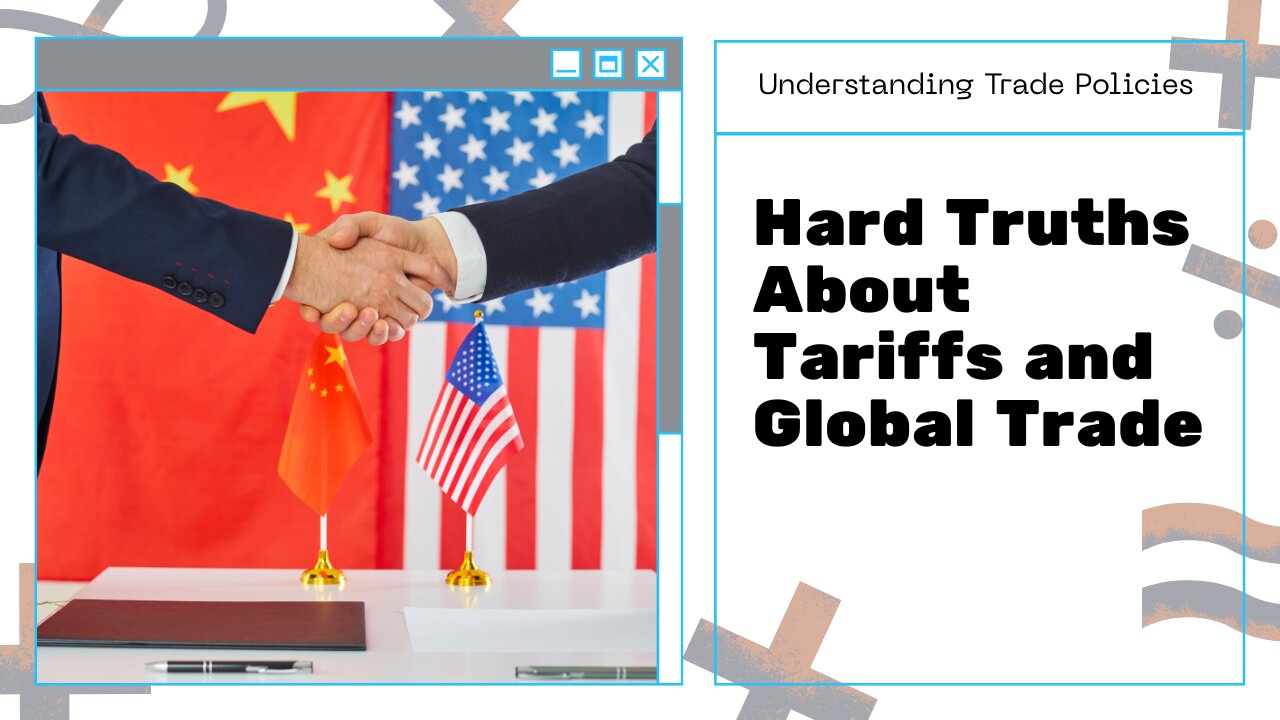
Declarations of Truth:
Declarations of Truth Locals Community:
https://declarationsoftruth.locals.com/
Conservative News and Views:
Clixnet Media
